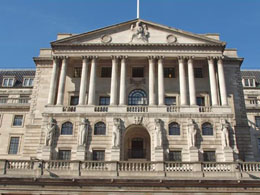
Commonwealth Central Bankers Raise Bitcoin Policy Questions
Commonwealth central bank governors say they want to look more closely into the impact of digital currencies on monetary policy before adopting a stance toward the technology. The comments came earlier this week during a meeting of about 30 central bank governors from the Commonwealth - an intergovernmental organization composed of 53 member-states. Held on 6th October and chaired by Bangladesh Central Bank governor Aitur Rahman, the event centered on bitcoin in the context of global remittances. Government ministers and other officials were also in attendance. The topic of digital....
Related News
Central bankers and senior finance officials from the Commonwealth are set to discuss bitcoin and digital currencies within the context of global remittances during a meeting tomorrow. The event is part of a two-day gathering of officials from the intergovernmental organization on 6th and 7th October. Comprised of 53 member-states, the Commonwealth is among a growing number of intergovernmental bodies to conduct work on digital currency issues. In late August, the Commonwealth Secretariat's Virtual Currency Working Group advocated that member nations move toward regulating the technology.....
The root cause of this problem is how a central bank is the “only player in town” to address economic turmoil. One thing most financial experts seem to agree on these days is how central banks find themselves in a precarious position. The Federal Reserve is sharing that opinion, as they feel central bank policy is doing more harm than good. In fact, 70% of bankers believe the monetary policy is a thing of the past. Central banks are on very thin ice, and more cracks start to appear every single day. Central banks have been using some interesting monetary policy options for several decades....
Forecasting how the global economy will evolve is becoming all but pointless. Anyone can create their own forecast and be right up to a certain extent, but the long-run scenario is impossible to guesstimate right now. Bitcoin users have no love lost for central bankers, and vice versa. Many central banks use rather unconventional monetary policy tools, which is causing friction within the banking sector itself. Something will have to change, as the advantages of Bitcoin and digital currency over central banks become more apparent every day. When people in the Bitcoin world hear the term....
Cryptocurrencies are very unstable for them to become a widely used method of payment, the Nigerian and Kenyan central bankers have reportedly said. In addition, the bankers claim that cryptocurrencies also pose a risk to financial stability. Narrowing the Financial Exclusion Gap The Nigerian and Kenyan central bankers have said cryptocurrencies are too volatile to become an acceptable payment method. The bankers also insisted that cryptocurrencies pose a risk to financial stability, a Reuters report has said. As per the report, the bankers namely, Kingsley Obiora, the deputy governor of....
The Bank of England's top economist has suggested that a digital currency based on bitcoin could alleviate monetary policy problems. Andrew Haldane, the UK central bank's chief economist and executive director for monetary analysis and statistics, spoke at the Portadown Chamber of Commerce in Northern Ireland on 18th September. During his speech, Haldane offered several ways in which central bankers can conduct monetary policy during a period when interest rates are close to or below zero. Haldane suggested that central bankers consider making measures like quantitative easing a permanent....





